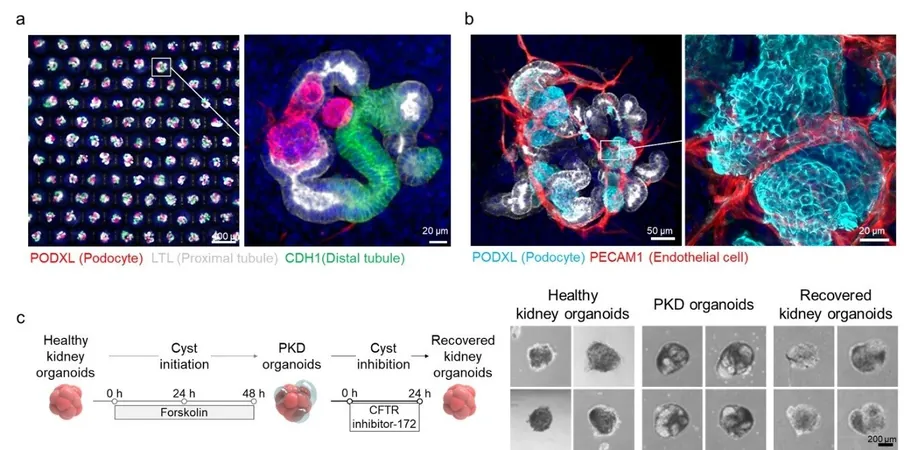
Revolutionary Breakthrough: New Platform Boosts Production of High-Quality Organoids!
2024-11-25
Author: Arjun
A pioneering research team has unveiled a groundbreaking platform that promises to revolutionize the field of organoid production, enabling the scalable and uniform creation of these sophisticated cellular constructs that mimic the functions of human organs. Their significant findings have recently made headlines in the prestigious journal Nature Communications.
Organoids, which are tiny three-dimensional (3D) models derived from human cells, play a crucial role in various medical fields including organ development, disease modeling, and regenerative medicine. These miniaturized organ-like structures have gained considerable attention due to their potential applications in drug testing and personalized medicine. However, challenges arise due to their inherent heterogeneity and low reproducibility, making it difficult to produce organoids at scale. This limitation has hindered their practical use in clinical settings and industrial applications, especially in drug development processes that require consistent quality and performance.
To tackle these pressing issues, the research team has introduced an innovative production platform known as UniMat (Uniform and Mature Organoid Culture Platform). This cutting-edge system utilizes a unique three-dimensional engineered membrane crafted from ultra-fine nanofibers—each only about 1/200 the width of a human hair. This advanced material creates an optimal environment for organoid formation, enhancing nutrient delivery and facilitating the differentiation of cells, both essential for the successful maturation of organoids.
Thanks to the UniMat platform, the researchers have successfully generated kidney organoids complete with nephron structures and blood vessels that closely resemble those in human kidneys, starting from human-induced pluripotent stem cells. This remarkable achievement not only demonstrates consistent quality but also significantly boosts production efficiency. In addition, the team leveraged UniMat to create a model for polycystic kidney disease, showcasing its potential for standardized organoid-based disease modeling and drug efficacy evaluations.
The project was spearheaded by Professor Dong Sung Kim and researcher Dohui Kim from the Department of Mechanical Engineering at POSTECH (Pohang University of Science and Technology), in collaboration with Professor Tae-Eun Park and researcher Hyeonji Lim from the Department of Biomedical Engineering at UNIST (Ulsan National Institute of Science and Technology).
Highlighting the importance of their research, Professor Kim stated, “Our advancements not only enhance organoid-based research and development by providing high reproducibility and reliability, but also pave the way for ethical alternatives to animal testing, a field that is gaining immense traction in the scientific community.”
As the demand for high-fidelity organoids grows in biomedical research, the UniMat platform may prove instrumental in bridging gaps in current methodologies, potentially transforming how researchers approach drug development, disease modeling, and even personalized treatments. This breakthrough marks a hopeful turning point in medical science, promising to accelerate advancements in therapy and diagnostics. Stay tuned for further updates on this exciting development!




 Brasil (PT)
Brasil (PT)
 Canada (EN)
Canada (EN)
 Chile (ES)
Chile (ES)
 España (ES)
España (ES)
 France (FR)
France (FR)
 Hong Kong (EN)
Hong Kong (EN)
 Italia (IT)
Italia (IT)
 日本 (JA)
日本 (JA)
 Magyarország (HU)
Magyarország (HU)
 Norge (NO)
Norge (NO)
 Polska (PL)
Polska (PL)
 Schweiz (DE)
Schweiz (DE)
 Singapore (EN)
Singapore (EN)
 Sverige (SV)
Sverige (SV)
 Suomi (FI)
Suomi (FI)
 Türkiye (TR)
Türkiye (TR)